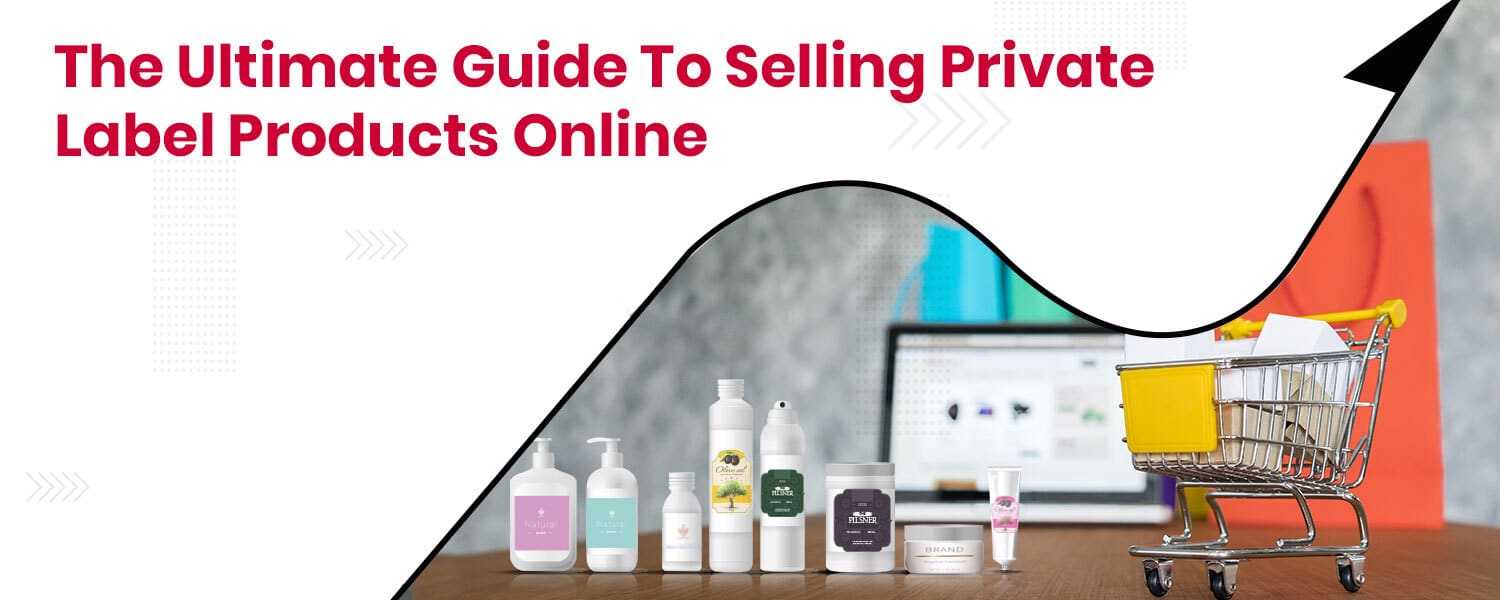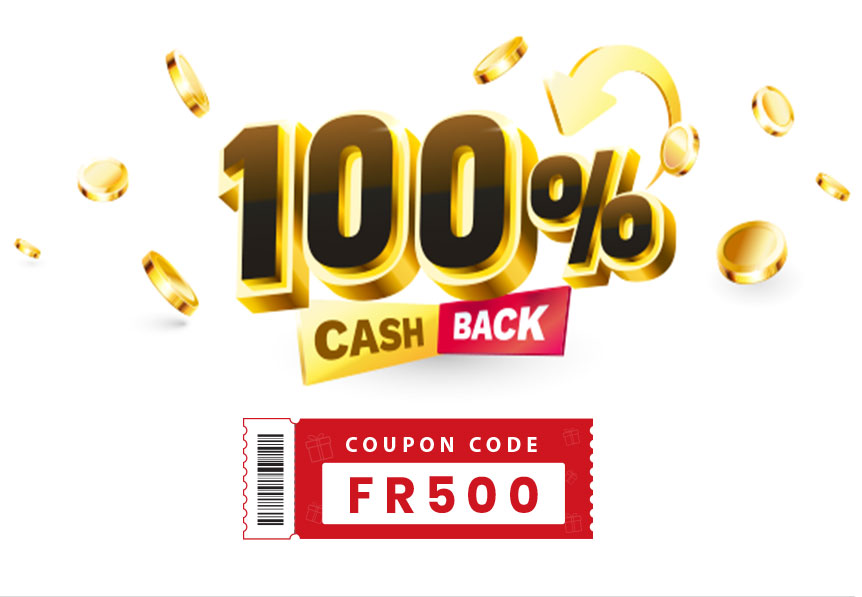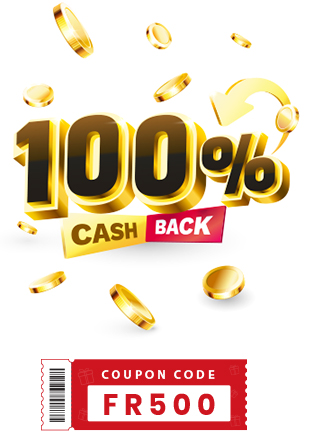Private label selling may sound alien to many of us, but what if we tell you that popular brands, which from kids to oldsters everyone knows, are also well-marketed private label brands? Selling a product around the world or even around the country seems hideous. Everything in between requires capital and expertise, from setting up a manufacturing unit, warehouses, and production line to building an efficient logistics system. Therefore many people stay away from eCommerce.
But today, you don’t have to have a manufacturing hub and go through the complexities of eCommerce development. In many eCommerce business models, you don’t have to touch the product you’re selling. One such business is private label product selling.
You can sell your product to millions without actually manufacturing it. So let’s understand how to start and grow this business.
What Is Private Labeling?
Private labeling is the online selling business where products are manufactured by another company and sold under the label of another (company) brand on different online marketplaces like Amazon, Flipkart, eBay, Etsy, and so on. According to Statista, Private label manufacturing in India grew by 31% in Q3 2020.
It will get straightforward from an example, suppose you’ve had a unique idea of selling fancy t-shirts on platforms like Amazon, but you don’t have the resources and capital to produce t-shirts at a large scale. Therefore, you will go to manufacturers and ask them to manufacture t-shirts under your brand and logo. Then, you will clear all the specifications of the t-shirts to tell the manufacturer to produce them on a large scale. Finally, after the manufacturing finishes, you will sell it under your brand name on Amazon, Flipkart, and other platforms.
That is private label selling. It is similar to owning a product without realizing it. Private labeling is often compared with white labeling businesses and is assumed to be similar. But there is a difference.
In white-label selling, you cannot add or tweak the features of the products, the manufacturer will produce products with a set of features, and you have to sell it under your label. On the other hand, in private label selling, you have full authority to tailor the product and sell it.
How Do I Start Private Labeling Product Selling?
Brainstorm Your Product
Having a buzz session to finalize the product and which niche to enter is the first rule of the business. However, do not rush to finalize your product. Instead, analyze the demand among the customers. Always choose the product which is in demand rather than choosing the product which You demand. You can use tools like Jungle Scout to research the product and demand between the customers, and also you can give it a shot if you find a unique product locally and think it will be a hit.
Ask these questions while choosing your product.
- What is the market size of the product
- What is the fluctuation in demand for the product
- Is the demand seasonal
- Will there be a lot of paperwork involved
- The return rate and possible innovation could happen with the product to stand out
Finalize The Specifications Of The Product
After conducting profound market research about the product, decide on the features and specifications of the product. Your product features will help you stand out and perform better than competitors. Remember, the majority of the Indian audience wants the best quality product at cheap rates. The quality of the product should not cheat the customers. It should add value to your customers and be available at an affordable price.
Consider these things:
- Seasonal products will not give you consistent profit, so avoid seasonal products.
- Do not sell unregulated and illegal products in some countries or parts of countries.
- Avoid products that require too much paperwork and certifications, like healthcare-related products.
- Avoid products that are prone to have quality issues, like electronics. And products that require variety and different SKUs like fashion and clothing.
Conduct Market Research
Conducting market research is a work of focused analysis. After you get your product finalized, check the viability to be relevant in the market before taking it to the manufacturer. Perform your market research about the customers’ demand, competition, response to product differentiation, product life, and what the ideal pricing will be.
Find The Right Manufacturer And Supplier
Finding the right manufacturer and supplier who can produce good quality products with your specification is a hardship. However, there are aggregator websites like Alibaba, IndiaMart, etc., where you can search multiple manufacturers and wholesalers and contact them directly.
Few things to keep in mind while finalizing the manufacturer.
- The manufacturer’s history with their client
- Review their working
- Delivery time
- Quality assurance
- Cost of the product
It is advisable to reach out to 2-3 manufacturers before finalizing the one and ask for samples of the product with the specifications you wanted. Ensure the manufacturer is a frequent communicator and clear about your requirements.
Finalize Your Brand Identity (Logo And Design)
Though it takes years of strategic planning and hard work to build a brand, the foundation is laid in the beginning when a product is manufactured. Since you’re in the private labeling business, you can sell products with your brand logo, design, and packaging. Communicate with your manufacturer to design and package the product according to your brand’s identity with the logo on the product and packaging.
Determine Your Fulfillment Strategy
You won half of the battle; now, the real intricacy begins. Product shipping and order fulfillment is one of the most complex things, where the chances of mistakes are high in the eCommerce business. The whole process is divided into two parts: shipping from the manufacturer to your warehouses and second from warehouses to end customers.
The shipment from the manufacturer to your warehouse is a slight matter of attention because the carriage may be coming from another country. In international shipping, you must be attentive to cargo safety and on-time delivery, and lots of permission and paperwork need to be completed. For all this execution, you need to find a reliable shipping carrier or a shipping aggregator like NimbusPost, one of the most trusted shipping aggregators in the country. They will help you in choosing the right shipping carrier.
Once you get your shipment to the warehouse or if you’re selling on Amazon, you don’t have to worry about warehouses. Instead, you have to ship the products to their fulfillment centers, and Amazon will deliver them when an order arrives.
Optimize Your Product To Increase Sales
Now you have a unique product to sell, manufactured, and ready to be ordered. The last task is to list the product on websites like Amazon, Flipkart, and eBay and optimize your listing to increase sales through advertisements and optimizations. You can optimize your listing through SEO-friendly product descriptions, PPC, putting high-quality images, and increasing sales through email marketing, social media marketing, paid advertisement, content marketing, etc.
How Do You Grow A Private-Label Brand?
Optimizing The Product Page For SEO
To make your product visible to potential customers, you need to optimize your website and product pages according to the search engine’s algorithm. If you’re selling your product on Amazon and think you don’t need to optimize or rethink, Amazon is also like a search engine for different products.
Write a brief SEO-friendly product description, optimize your images, and specify your brand’s name, product color, size, dimensions, etc.
Bring Differentiation To Your Product
Private labeling was a profitable business with less competition after the covid-19 pandemic. Then, people started buying more through online stores and selling online and on different marketplaces, thus increasing the competition.
Today there is cut-throat competition on Amazon across every category. To skip this competition, you need to list unique products for your customers that competitors are not selling.
style=”color: #2ea3f2;”
Get Customer Reviews
8 out of 10 customers decide whether to buy a product by reading other customers’ reviews. Although, because of the loop in online selling, customers can’t physically experience a product. They believe in other people’s experiences and opinions. Customers’ positive reviews are a deal breaker for products.
Use Social Media
Gone are the days when businesses used to print ads in newspapers, billboards, and whatever to promote and increase the sales of a product. Today, people have shifted to social media, and businesses use an omnichannel approach to acquire customers.
Use social media to bring sales of your products, run paid ads, use product images, short videos (Instagram reels), etc.
Content Marketing
‘Content is King’ you must have heard this phrase, and it is no fluff. Content marketing is the ultimate strategy that eCommerce businesses use to attract quality leads. It is the turtle in the race, slow but wins ultimately. Use blogs, social media, video content, and podcasts to bring leads for your products.
Use Email Marketing
Email marketing is a strategy that never fails to bring customers. The conversion rate of email marketing is around 5%, which is more than the website conversion rate. That’s why email marketing is an ace in the pocket of every marketer. Run email marketing campaigns to generate sales, reduce cart abandonment, upsell, and retarget customers.
Conclusion
Despite being the competition on Amazon, private label selling is the best choice to start an eCommerce business. You don’t need to worry about anything but just how to list and market the product.
Remember, when you start a private label business, you must worry about logistics and international shipping. However, sometimes experienced retailers get clueless about problems like shipment stuck or cargo missing, items damaged, theft, etc., so it is advantageous to delegate these responsibilities to experienced logistics aggregators like NimbusPost. We act as a one-stop solution for all logistics wants for SMBs. From choosing an efficient shipping carrier to helping in international shipping, we will solve it for you.




